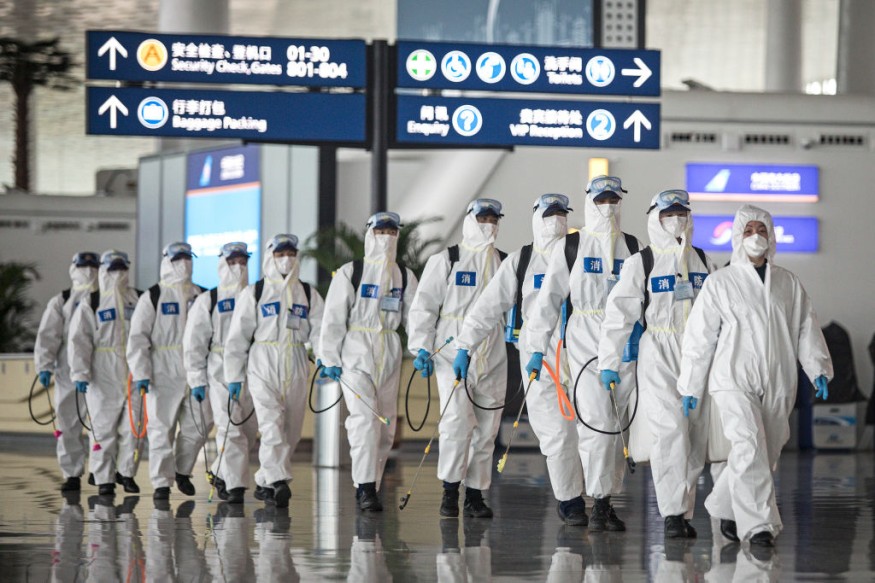The COVID-19 crisis has forced us all to reconsider the dangers of certain practices and their advantages. Is it all right to go for a jog or to the park? Will they need to sanitize groceries? The questions become harder as states reopen their economies. Is heading to a cafe all right? Sending the children back to daycare? Even if it involves standing in a crowd, is demonstrating against inequality worth the risk?

And when we make these uncomfortable choices, we experience an extra burden: pandemic shaming. In the COVID-19 crisis, there is the propensity to criticize persons who create multiple decisions than we will. In a frightening scenario where one's conduct will inflict damage to another, pandemic bullying is understandable. But if we follow an assumption of decency instead, which holds that all, like us, are good, flawed human beings, each trying their utmost, the following weeks would be smoother.
There are some examples of pandemic shaming. In March, Spring Break Partiers drew flak. On Twitter, a video clip from a recently opened Las Vegas casino ignited an uproar. Shame has also been aimed at persons who take or advocate steps such as mask-wearing and stricter efforts to contain current diseases that support COVID-19.
Here's why we practice 'pandemic shaming' and why we should not do it.
Here is a video from June 6th in Las Vegas. 189 tested positive that day. Just a few weeks later, those numbers were near 1000, and of course, who knows how many more cases never stayed in Vegas. https://t.co/SYneixtyKp
— Dan Rosenberg (@danrosenbergnet) August 2, 2020
Why is There Pandemic Shaming?
Any economic and psychological concepts may help one appreciate why other persons can draw a different opinion about the danger of COVID-19, why it's tempting to criticize them when they do, and why it's worth attempting to curb the impulse.
First, persons share the same beliefs in common. But they measure them differently. Public discourse was rightly based primarily on protection throughout the pandemic's early stages, especially mitigating COVID-19 danger. If protection were the only attribute that counts throughout the pandemic, so it will also be impossible to take any chances that could lead us to get the virus. But most of us will understand that there are other essential principles, such as economic stability and human connections, after contemplation, particularly as the months go by. If it enables one to attend a father's funeral or reopen any schools, is some danger acceptable? The responses rely on how you evaluate the major principles at risk.
Second, as people see someone making actions they differ with, people prefer to presume the worst without thoroughly appreciating the conditions. Classic scientific studies have shown that we also have the potential to electroshock a person, torture a convict, or refuse to help a man who has collapsed on the ground. Yet we condemn people who do this stuff unfairly, imagining we will never do the same thing. A more recent study shows that we appear to overlook the gains we have had and overlook the drawbacks that others encounter. And 69 percent of respondents in a new study of Massachusetts citizens thought they were "very strict" regarding social distancing, but just 12 percent felt that others were similarly strict.
Third, we are always mistaken in our assessments. Worse, we do not realize how incorrect we are. Dream on how mistaken critics have been about several problems with COVID-19 already. Initially, specialists advised us not to wear masks until we are ill; now, they encourage all to wear masks. The predictions of epidemiological models that are commonly used have ended up being far off. If even specialists can get this wrong, what about the rest of us? This indicates that it is worth telling ourselves, before assessing anyone, how confident we are that our own judgment is accurate.
Why Shaming a Pandemic Never Works
June Tangney, a George Mason University social psychologist, and lecturer, told CNN that pandemic shaming doesn't actually work at all.
It may have the reverse effect: it is typically performed to scold someone for not enforcing the rules to modify that person's actions. But it is having the reverse impact usually.
Individuals do not want to be told what to do. And, Tangney added, when they're shamed over actions that felt innocuous only months before, they're apt to feel threatened and become aggressive. They may mitigate or dispute any damage their behavior could inflict instead of complying.
It pushes underground behavior: Bullying doesn't imply people are not going to indulge in risky activities. Rather, it drives underground movement, says Julia Marcus, an epidemiologist for infectious diseases and an assistant professor at Harvard Medical School.
It is all that Marcus learns well from her experience as a researcher on HIV. Abstinence-only advertising does not function, evidence reveals. Nor would it work to advise people to keep from meeting their mates or heading outside for an unspecified amount of time.
What we have to do instead
There are also specific steps that you should do if you see someone acting in dangerous ways or making you feel unsafe.
Try a kinder approach: You can politely encourage them to put one on instead of harshly questioning somebody over not wearing a mask. Express what your thoughts are, then let the other individual make a choice ultimately for themselves.
Keep the request as straightforward as possible: give them one if you're worried that somebody isn't wearing a mask.
Offer them the respect it deserves: right now, there is a great deal of anxiety and rage being felt, and a little kindness will go a long way.
Check out more news and information on COVID-19 on Science Times.
© 2026 ScienceTimes.com All rights reserved. Do not reproduce without permission. The window to the world of Science Times.











